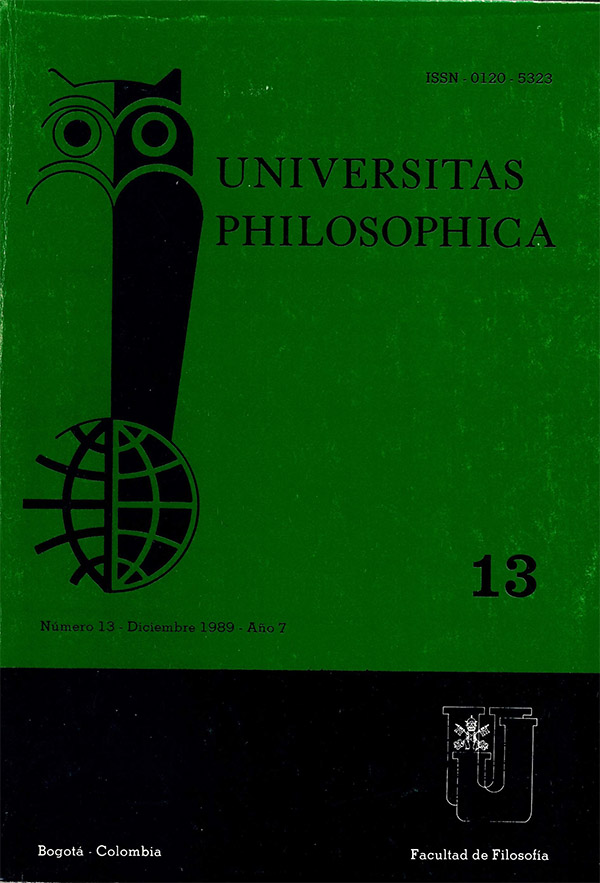Abstract
El presente texto reproduce la lección inaugural del segundo semestre académico en nuestra Facultad. Tiene una intención fundamentalmente exhortativa y se basa en la lectura de algunos textos platónicos sobre la vida y el significado cultural de Sócrates. El autor refleja en estas páginas su vivencia de la práctica filosófica, que él concibe más como una búsqueda racional de sentido para el vivir humano –búsqueda que compromete la totalidad de la existencia– que como un quehacer técnico-profesional dentro de un sistema socio-cultural dado. Se entiende aquí la filosofía como una vocación al servicio de todos los hombres. Esta vocación o llamado", que impele a traspasar el ámbito de los intereses personales, se concreta por su propia naturaleza en una serie de actividades teóricas –necesariamente ambiguas y peligrosas– orientadas a la transformación de los individuos y de las colectividades humanas. En la figura de Sócrates, según nos la presenta en la Apología y el Critón el más grande de sus discípulos, se ejemplariza el carácter crítico y educativo de la vocación filosófica.
This journal is registered under a Creative Commons Attribution 4.0 International Public License. Thus, this work may be reproduced, distributed, and publicly shared in digital format, as long as the names of the authors and Pontificia Universidad Javeriana are acknowledged. Others are allowed to quote, adapt, transform, auto-archive, republish, and create based on this material, for any purpose (even commercial ones), provided the authorship is duly acknowledged, a link to the original work is provided, and it is specified if changes have been made. Pontificia Universidad Javeriana does not hold the rights of published works and the authors are solely responsible for the contents of their works; they keep the moral, intellectual, privacy, and publicity rights.
Approving the intervention of the work (review, copy-editing, translation, layout) and the following outreach, are granted through an use license and not through an assignment of rights. This means the journal and Pontificia Universidad Javeriana cannot be held responsible for any ethical malpractice by the authors. As a consequence of the protection granted by the use license, the journal is not required to publish recantations or modify information already published, unless the errata stems from the editorial management process. Publishing contents in this journal does not generate royalties for contributors.


